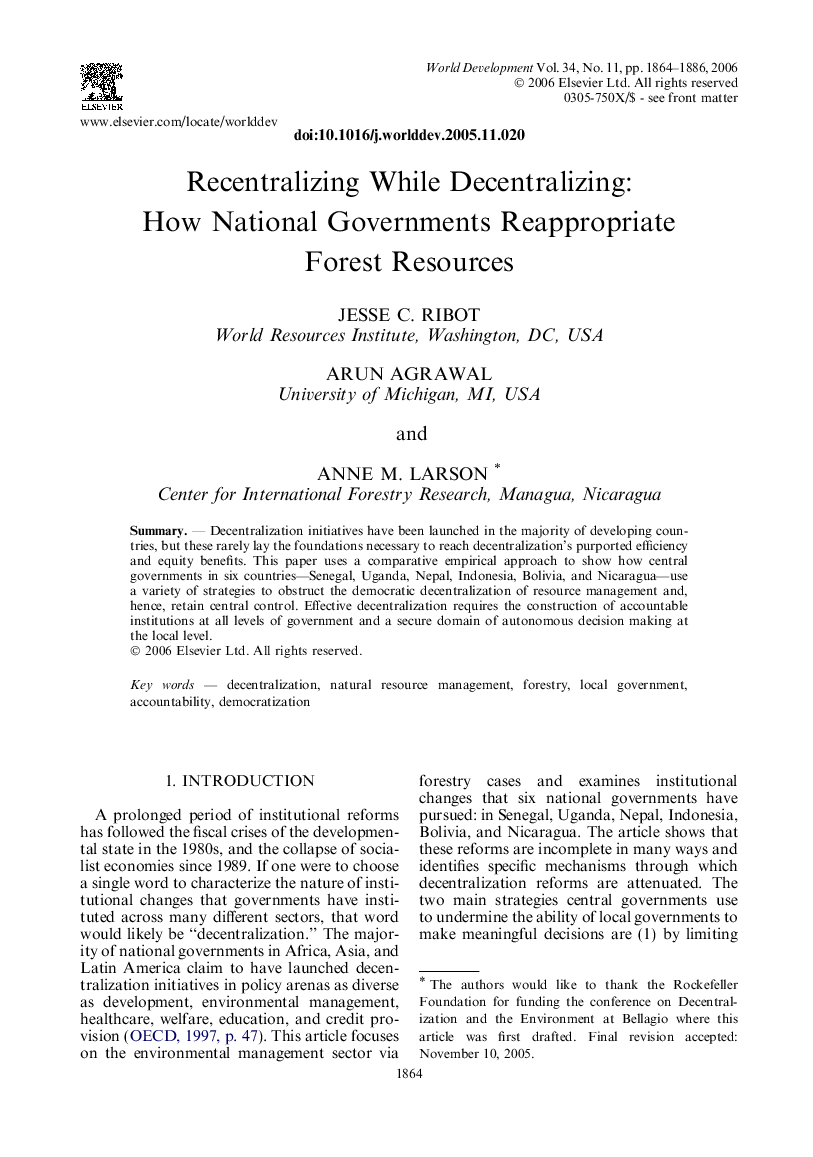| Article ID | Journal | Published Year | Pages | File Type |
|---|---|---|---|---|
| 992564 | World Development | 2006 | 23 Pages |
Abstract
SummaryDecentralization initiatives have been launched in the majority of developing countries, but these rarely lay the foundations necessary to reach decentralization’s purported efficiency and equity benefits. This paper uses a comparative empirical approach to show how central governments in six countries—Senegal, Uganda, Nepal, Indonesia, Bolivia, and Nicaragua—use a variety of strategies to obstruct the democratic decentralization of resource management and, hence, retain central control. Effective decentralization requires the construction of accountable institutions at all levels of government and a secure domain of autonomous decision making at the local level.
Keywords
Related Topics
Social Sciences and Humanities
Economics, Econometrics and Finance
Economics and Econometrics
Authors
Jesse C. Ribot, Arun Agrawal, Anne M. Larson,
